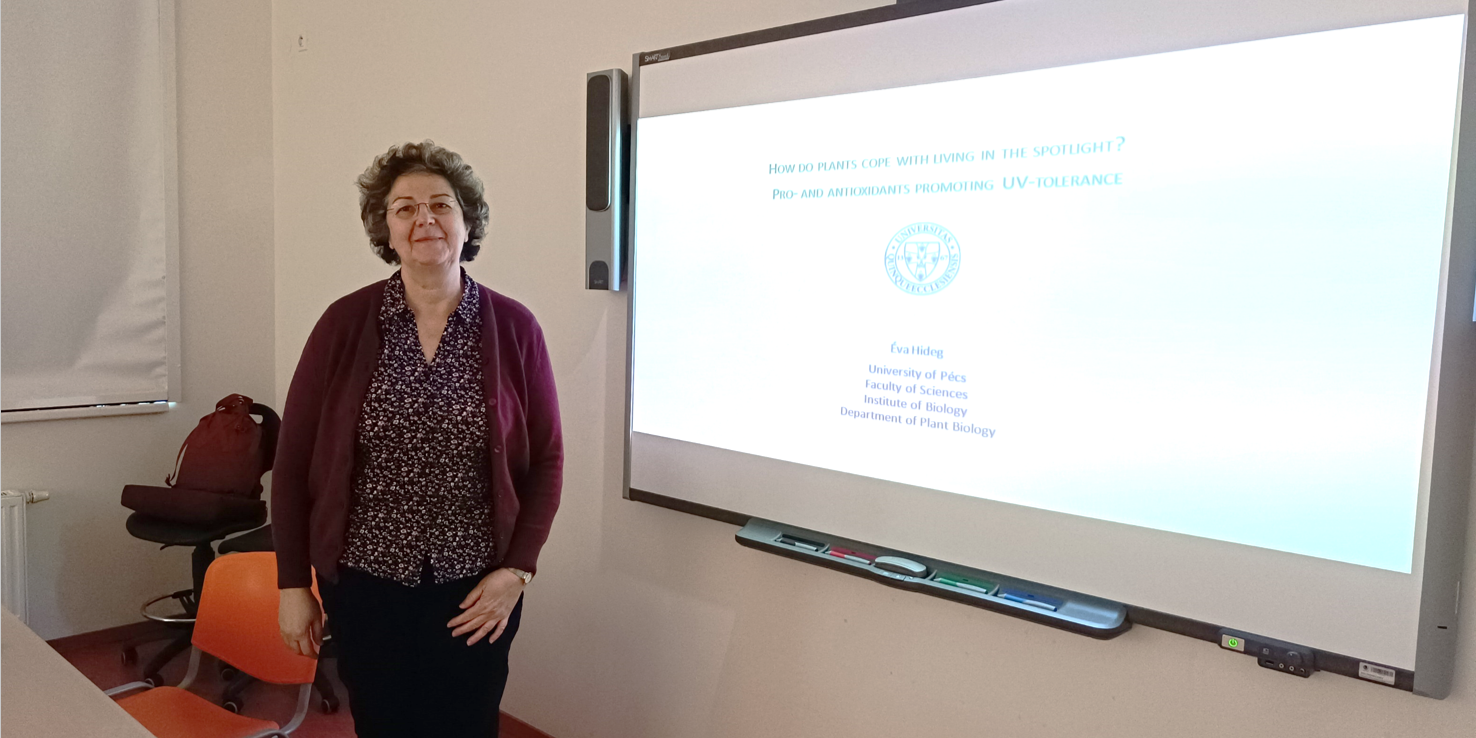Recently (November 30 – December 1, 2023), our research group had the honor of hosting Prof. Éva Hideg from the University of Pécs (Hungary). Prof. Hideg is an internationally recognized expert in the field dealing with the impact of ultraviolet radiation (UV-B) on plants and is among the most cited Hungarian scientists in the field of biological sciences. Her research is focused on the role of reactive oxygen species (ROS) which are intensively produced in plants exposed to high doses of UV-B radiation. She also delves into the significance of UV radiation as an environmental signal influencing the control of normal plant development and their acclimation to current environmental conditions.
Her research encompasses the investigation of the negative effects of high levels of ROS in plant cells at the molecular level, and partially, their signalling function. An important aspect of her research is the examination of protective processes that reduce the extent of damage caused by ROS, particularly processes involving low-molecular-weight antioxidants belonging to the group of phenolic compounds and the antioxidant activity of specialized enzymes.
On December 1, 2023, Prof. Hideg delivered a lecture titled “HOW DO PLANTS COPE WITH LIVING IN THE SPOTLIGHT? PRO- AND ANTIOXIDANTS PROMOTING UV-TOLERANCE” as a part of the department of physics’ series of expert seminars. In addition to the necessary theoretical background, the lecture included intriguing results concerning the relationship between the structure of phenolic compounds and their antioxidant activity (ability to neutralize various types of ROS), as well as their affinity to the antioxidant enzyme POD (for which these substances can serve as electron donors). Last part of the presentation was focused on a field study examining the diverse protective functions of phenolic compounds in grapevine plants (leaves) and the regulation of their content in this plant material due to external environmental factors (UV, temperature, humidity, etc.).
As part of Prof. Hideg’s visit, she also participated in a seminar with the BF group, where current studies conducted at our workplace were presented and subsequently discussed, along with potential collaboration opportunities in the research of ROS and low-molecular-weight protective metabolites in plants.
The visit was supported by the LERCO project (CZ.10.03.01/00/22_003/0000003)




